What is Exoplanet Watch?
Meet the Exoplanet Watch team
Education: BA in Astronomy from Cornell University, PhD in Astronomy & Astrophysics from UC Santa Cruz
Occupation: Extreme Precision Radial Velocity Investigation Scientist at JPL
What do you do on Exoplanet Watch? “I’m helping to expand the capabilities of Exoplanet Watch’s pipeline to simultaneously fit both transit and radial velocity (RV) data. This allows us to measure both the radius (from transit data) and mass (from the RV data) of the planet, providing a more complete picture of what kind of world we’re detecting.”
Why do you work on Exoplanet Watch? “I enjoy introducing new people to both the wonders and complications that come from working with RV data, and view Exoplanet Watch as a great way to increase community engagement with exoplanet science!”
Education: B.Sc. Physics and Communications with minors in Math and Computer Science from Cal Poly Pomona
Occupation: Software Development and Engineering Specialist at Raytheon (JPL Contractor)
What do you do on Exoplanet Watch? “I work on architecture, programming and problem solving. My role is to take science intent and translate it to the nuts and bolts of a reliable software system. This involves everything from designing how different pieces integrate together to writing code to building out server functionality. I write Python code for things like distributing research results to Cloud-based systems, organizing data into computer-readable formats and parallelizing complex algorithms to make them run faster.”
Why do you work on Exoplanet Watch? “It's a personal goal to help better the world by helping science, and Exoplanet Watch is a great opportunity to participate in the leading edge of new astronomy research. Besides that, I'm enamored with Star Trek The Next Generation, and this is a great way to help get us there one day!”
Education: Junior Undergraduate at California Polytechnic University, San Luis Obispo, majoring in Computer Science
Occupation: Exoplanet Watch Intern at NASA JPL
What do you do on Exoplanet Watch? “I work on Exoplanet Watch's data reduction pipeline, EXOplanet Transit Interpretation Code (EXOTIC). Adding features to the reduction process and designing the user interface are some of my objectives regarding the pipeline. I also aid in searching for an affordable way to allow citizen scientists to gather data from transiting exoplanets.”
Why do you work on Exoplanet Watch? “It's incredible to partake in the expanding research field for exoplanets, driving me to learn something new every day. I also admire Exoplanet Watch's ability to bridge the gap between the professional environment and those of many different educational backgrounds.”
Education: recent Astrophysics graduate from Arizona State University
Occupation: Exoplanet Watch Intern at NASA JPL
What do you do on Exoplanet Watch? "I’ll be working on TESS data to bring it to CITISENS. The Transiting Exoplanet Survey Satellite is detecting thousands of exoplanet candidates, and Exoplanet Watch can help confirm which of these candidates are really exoplanets by having citizen scientists do follow up observations to confirm their existence."
Why do you work on Exoplanet Watch? "Ironically enough, I hated astronomy as a kid - the vastness of space is terrifying to me! However, in the end, my fear was trumped by my curiosity about worlds beyond our solar system. The big question that motivates my work on Exoplanet Watch is ‘How can we create a welcoming astrophysics community and open up the doors of astrophysics to everyone?’"

Education: BA in Chemistry (UC Berkeley)
Occupation: Educator at NASA JPL
What do you do on Exoplanet Watch? “I help manage and grow this amazing community of citizen scientists. I connect people, I educate, and I communicate."
Why do you work on Exoplanet Watch? “Because exoplanets are my personal passion! I started my career at NASA through working on Kepler mission education products almost twenty years ago, and after thousands of exoplanets have been discovered, it's wonderful that now anyone (yes, you!) can help to make discoveries about these distant worlds!”
Education: PhD in Planetary Science
Occupation: Data Scientist at NASA JPL
What do you do on Exoplanet Watch? “I assist in the development and management of the Exoplanet Watch citizen science project, a collaboration between amateur astronomers, colleges, and universities, and professional astronomers to perform ephemerides maintenance on transiting exoplanets to ensure the efficient use of professional observatory time.”
Why do you work on Exoplanet Watch? “The existence of worlds beyond our own has been a subject of fascination and inspiration since I was younger and started because of Star Wars. We have the ability to observe these exoplanets from our own backyard and I want to teach people how.”

Education: BS in Geophysical Sciences from UChicago, PhD in Planetary Science from Univ. of Arizona - LPL
Occupation: Assistant Professor in the School of Earth and Space Exploration at Arizona State Univ.
What do you do on Exoplanet Watch? I created and teach and online research course for undergraduates that utilizes tools from Exoplanet Watch to update the ephemeris of a new target each semester. I also co-mentor several undergraduates alongside folks at Exoplanet Watch on projects spanning from ephemeris maintenance and ground-based observing to planetary detection.
Why do you work on Exoplanet Watch? I'm a big believer in the power of citizen science and how it can be used to make research accessible to a broad population of learners. It is a fun experience to realize all we can do with small, ground-based telescopes when it comes to making an impact on exoplanet research
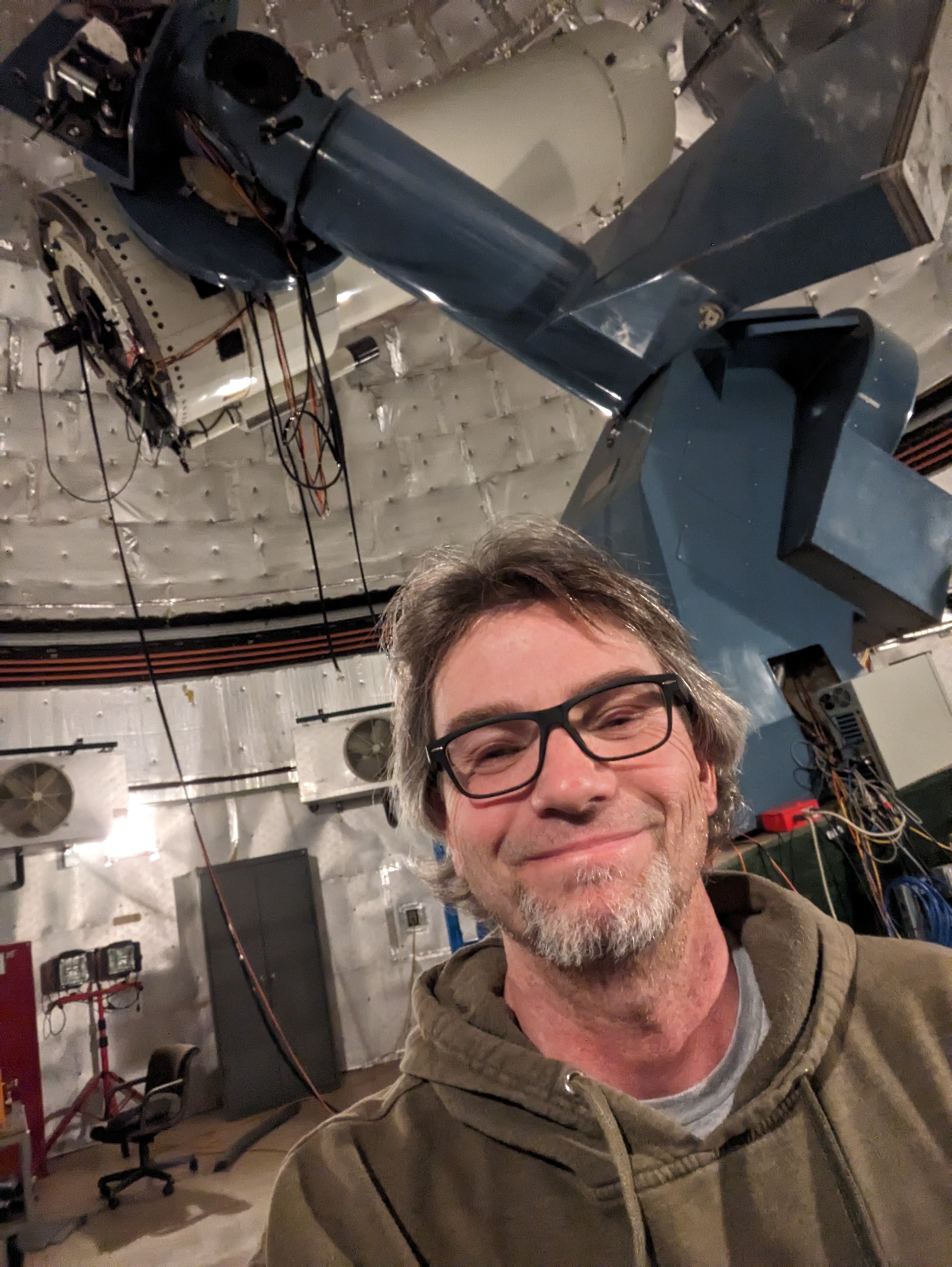
Occupation: Optical Telescope Systems
What do you do on Exoplanet Watch? “I build and maintain control software/hardware observing systems for the 1.0m, 0.6m, 0.4m and “Gizmo” 6” telescope array at the Table Mountain Observatory. Using these systems I am observing exoplanet transits on most clear nights, analyzing and uploading into the AAVSO database.”
Why do you work on Exoplanet Watch? “In the more than 20 years I have been working at Table Mountain supporting astronomical campaigns, the Exoplanet Watch program has been the most fun and rewarding.”
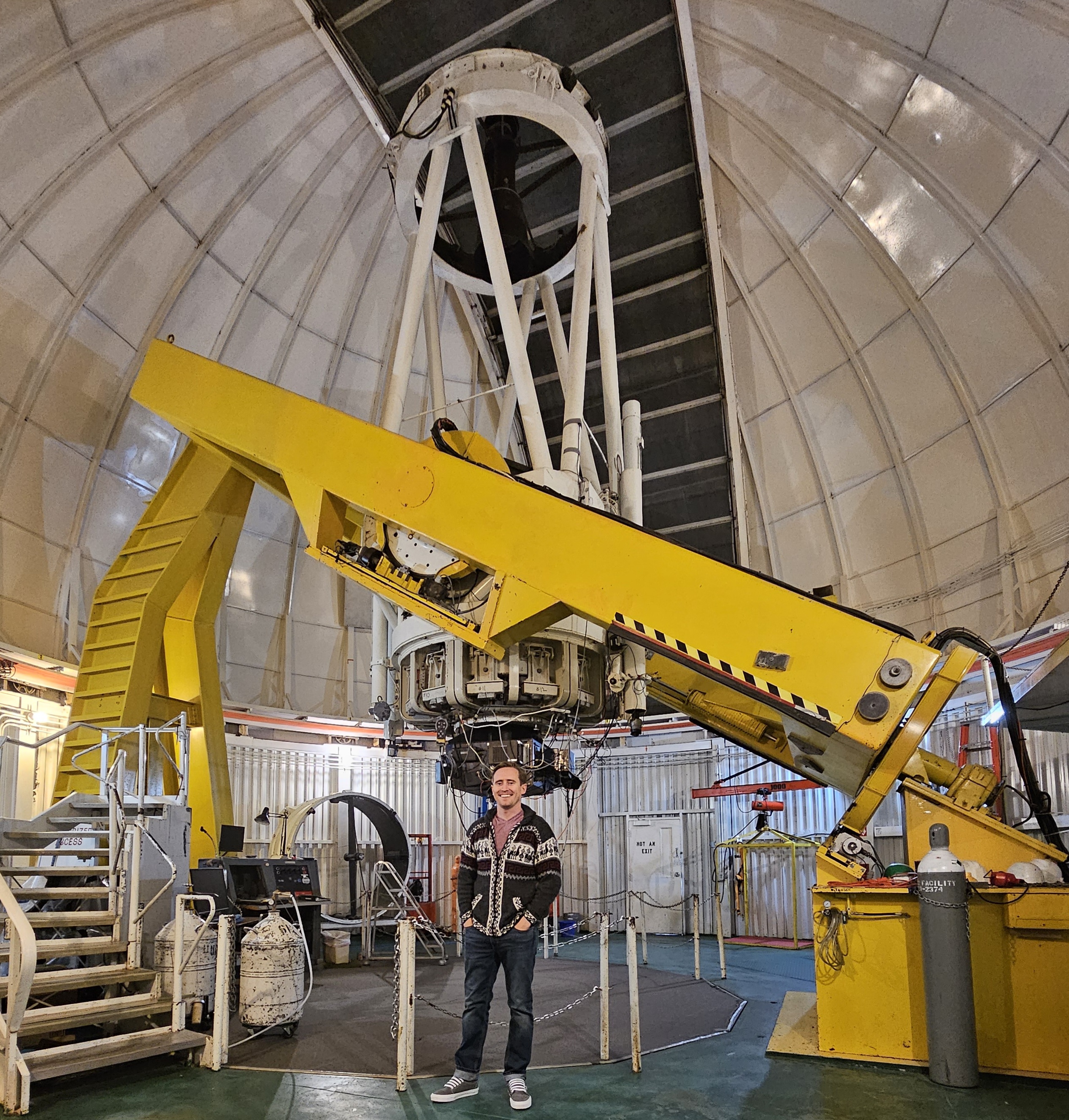
Education: Associates of Applied Science in Meteorology; BS in Astronomical and Planetary Sciences (Arizona State University)
Occupation: USAF Meteorology
What do you do on Exoplanet Watch? "Focusing on integrating archival RV data and feature the in-depth study of a single target as a proof of concept to centralize and standardize RV data for easy access for all in the future in one location. Using this information to update the ephemerides and eclipse timing for future ARIEL and JWST observations."
Why do you work on Exoplanet Watch? "It is literally the 'What I want to do when I grow up' (even though I'm already in my 30s). I've been interested in astronomy for the last 20 years and did astrophotography in my off time and even tried to get some light curves before Exoplanet Watch. When a research opportunity through ASU appeared, I jumped at it to finally be able to do some work that could be useful instead of just astrophotography in my off time, and it has continued from there. It is as close as we can get to exploring the universe until the USS Enterprise is built in 220 years."
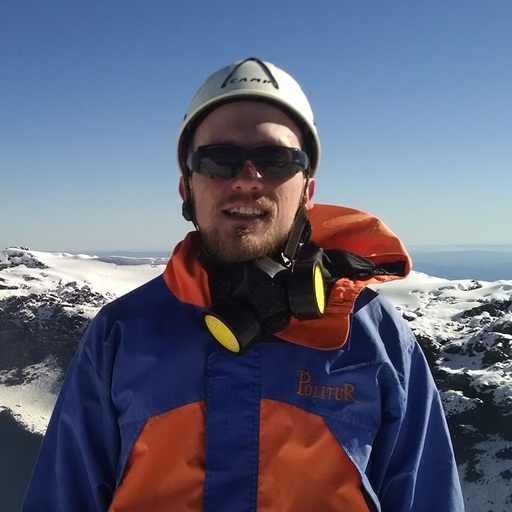
Education: PhD in Astronomy (Columbia University)
Occupation: Astronomer
What do you do on Exoplanet Watch? "Connect student researchers with Exoplanet Watch resources."
Why do you work on Exoplanet Watch? "It is the best group available for resource-limited institutions to collaborate in exoplanet transit follow-up studies."
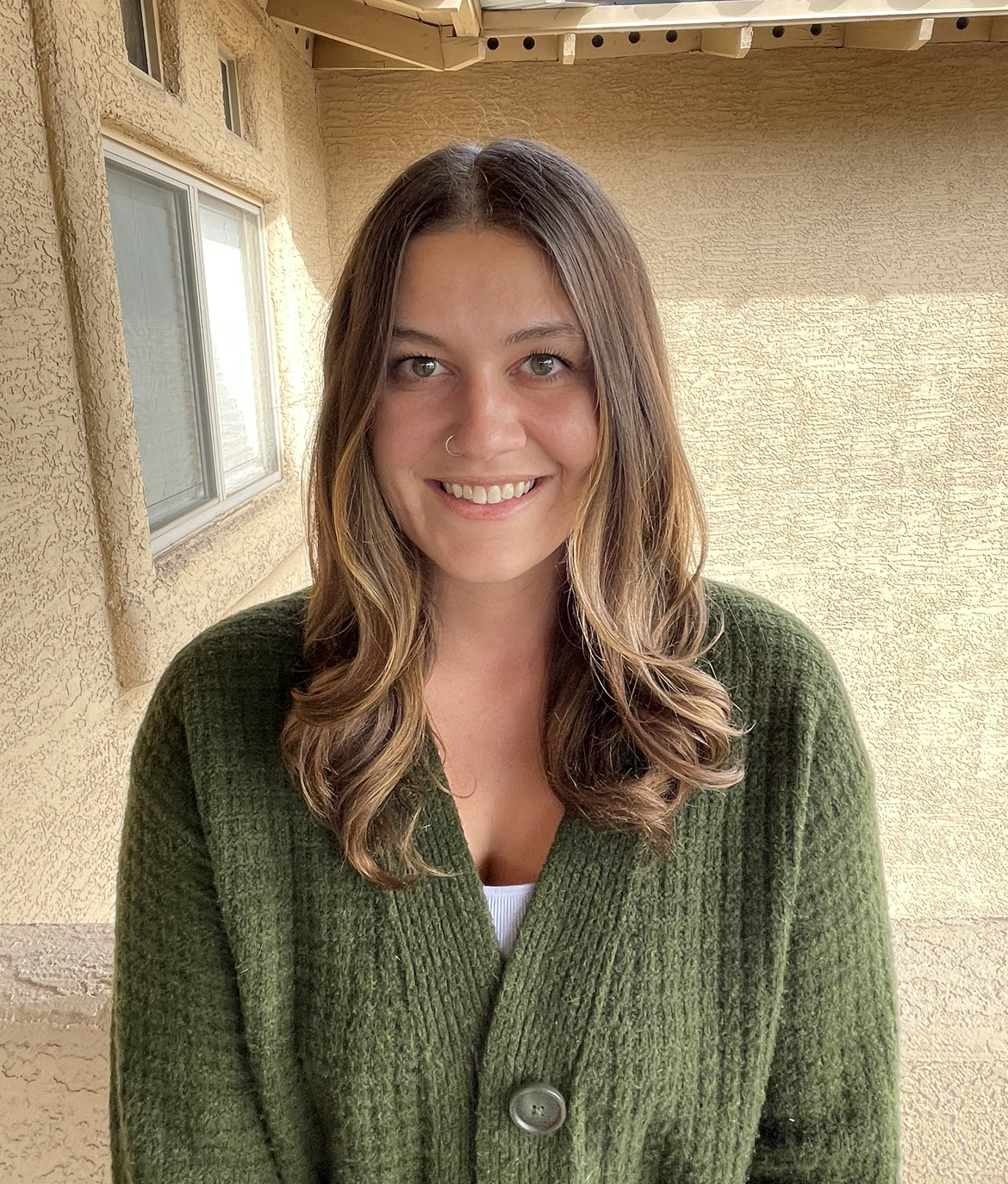
Education: BS in Astrophysics (University of Georgia)
Occupation: Astrophysics PhD candidate at Arizona State University
What do you do on Exoplanet Watch? "I helped create and teach an online research course at ASU. Students in the course partner with Exoplanet Watch and use EXOTIC to update the ephemeris of a hot Jupiter each semester."
Why do you work on Exoplanet Watch? "I have a passion for improving the accessibility of astronomy and research. Citizen science projects like Exoplanet Watch are an incredible way to do this. The Exoplanet Watch community is also incredibly helpful and supportive."
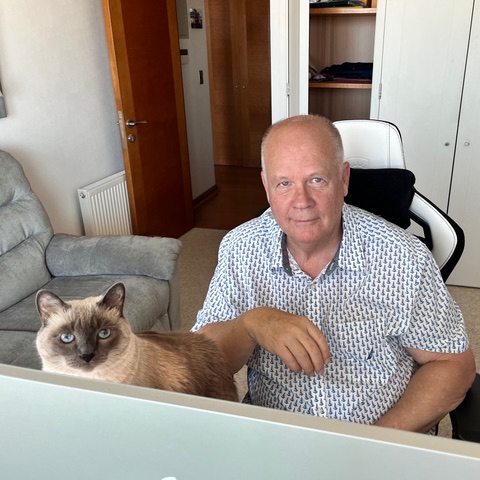
Education: BS in Physics; BS in Astronomical and Planetary Sciences
Occupation: Retired
What do you do on Exoplanet Watch? "I am collaborating on a team with participants from Arizona State University and NASA/JPL to refine exoplanet ephemeris using citizen science transit data from Exoplanet Watch and professional terrestrial and space observatories, along with radial velocity data from public archives. The techniques developed within this team can allow all Exoplanet Watch users to use radial velocity data to refine the ephemeris they create from their transit observations. I am also interested in using future astrometry data (specifically from the Vera C Rubin/LSST observatory after operations begin in 2025) to complement Exoplanet Watch transit observations as we have done with radial velocity data."
Why do you work on Exoplanet Watch? "Citizen science and AI are likely the tools of the future, providing the horsepower to discover and refine the ephemeris for exoplanet research as more targets are added to the inventory. The Rubin Observatory is an example of a source that will contribute massive amounts of data to astronomy archives. The future will bring more of these sources. Professional astronomers and astrophysicists will benefit greatly from partnering with citizen scientists to explore the observations and data that are produced in ever-increasing amounts."

Education: BS in Applied Computational Physics and Professional & Technical Writing (CUNY City Tech); MsC in Astrophysics (In Progress - CUNY Graduate Center)
Occupation: Graduate student in Astrophysics at the CUNY Graduate Center
What do you do on Exoplanet Watch? "I will assist in the development of the EXOTIC code that helps citizen scientists process light curves and the formation of literature for Exoplanet Watch."
Why do you work on Exoplanet Watch? "I find global cooperation inspirational -- the idea of citizen scientists and professional astronomers all over the world coming together to help us understand our expansive cosmos is incredibly romantic to me. As a science fiction writer and astrophysics student, I've always been moved and fascinated by the worlds beyond our own and the physical laws by which they're governed. Joining Exoplanet Watch has been a truly remarkable experience in that it oversees star-enamored communities coming together to work toward a common goal of education, innovation, and cooperation."
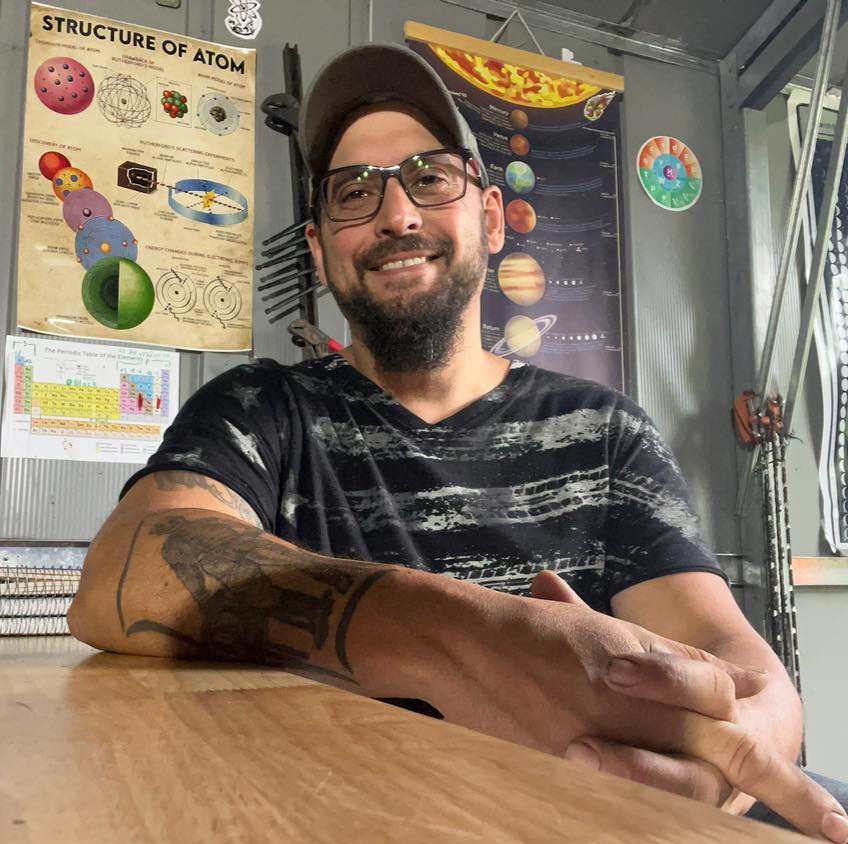
Education: Majoring in Astronomical and Planetary Science with minor in Physics
Occupation: Undergraduate Researcher
What do you do on Exoplanet Watch? "In collaboration with Arizona State University and NASA/JPL I analyze citizen science transit data along with archived data from large ground and space telescopes to refine the ephemeris of exoplanets. Additionally, we include eclipse and radial velocity data to constrain the parameters of exoplanets. One such study has lead to publication with citizen scientists Exoplanet Watch members as co-authors. I also utilize large telescopes like the 61-inch Kuiper telescope and the 200-inch Hale telescope at Palomar Observatory for follow-up transit observations. Current research involves validating and confirming exoplanet candidates through proposed radial velocity observations and follow-up transit observations. Long-period planets with Earth-like orbits in particular excite me. Some of these candidates have only two transits, making period determination challenging. By analyzing existing data, we can predict possible orbital periods for these planets and forecast future potential transit dates for observation. The network of Exoplanet Watch observers can utilize their own telescopes to help find these transits. After graduating from Arizona State University, I plan to pursue a Ph.D. program and dedicate my career to exoplanet research."
Why do you work on Exoplanet Watch? "Working on Exoplanet Watch has been a personal and professional privilege. Interacting with the Exoplanet Watch community has been immensely fulfilling, allowing me to connect with people around the country and the world who share a passion for exoplanet research. As a non-traditional scientist who worked as a concrete mason for most of my life, I strongly believe that ANYONE is capable of participating in frontline research with drive, determination, and a little help. I have been fortunate to work with a team of exoplanet research professionals who have helped me grow both personally and as a scientist. I hope to carry the torch and do the same for others."

Education: BS in Astronomy (San Diego State University), PhD in Physics with an Astrophysics Emphasis (University of California, Riverside)
Occupation: NASA Postdoctoral Program Fellow
What do you do on Exoplanet Watch? "I help identify and account for the effects of stellar variability in the observed light curves of known and candidate exoplanets. Stellar variability that is unaccounted for can lead to false positive exoplanet detections and incorrect planet radius measurements. Stellar variations related to the star’s rotation can also reveal information about the age of the exoplanetary system."
Why do you work on Exoplanet Watch? "There are so many small pieces that contribute to the larger puzzle of characterizing an exoplanet. Understanding the host star’s variability is just one of those pieces, but it’s amazing to see how many pieces are fulfilled through the work of many members throughout the Exoplanet Watch collaboration. I also really enjoy working with and mentoring students and community members who are enthusiastic about astronomy, science, and Exoplanet Watch!"
Education: BS in Astronomy & Astrophysics (Villanova University); MSc in Space Science (University College London); PhD in Planetary Science (University of Arizona - Lunar & Planetary Laboratory)
Occupation: Deputy Project Scientist for Communications for the Roman Space Telescope at NASA’s Goddard Space Flight Center
What do you do on Exoplanet Watch? “I am the Project Lead and Project Scientist for Exoplanet Watch as well as a contributor to our data reduction software, EXOTIC, and our analysis pipeline, CITISENS.”
Why do you work on Exoplanet Watch? “I absolutely love sharing my work and research with the general public. I am excited to see the measurement precision capabilities of amateur astronomers and am delighted to help them support the science of transiting exoplanet missions and ground-based observatories.”
Former Team Members
Leah Albrow - Undergraduate Intern (University of Canterbury (New Zealand)) - Summer 2023
- EXOTIC software development
Nora Bailey - Public Engagement - 2022-23
- Helped launch Exoplanet Watch to a general public audience
Ethan Blaser - Undergraduate Intern (University of Virginia) - Summers 2018 and 2019
- EXOTIC software development
Alexandra Iturralde - Undergradute Intern (University of New Mexico) - Summer 2019
- Content creation and development
Kiah May - Undergraduate Intern (University of Colorado - Boulder) - Summer 2022 - Spring 2023
- EXOTIC software development
- Content creation and development
Tiana James - Undergraduate Intern (Howard University) - Fall 2020 - Summer 2021
- Website content creation
Jonah Rolfness - Undergraduate Intern (Caltech) - Summer 2021 - Spring 2022
- Exoplanet Watch telescope instructions
- EXOTIC software development
Marlee Smith - Undergraduate Intern (Cornell) - Summer 2020 - Spring 2021
- EXOTIC software development
Aaron Tran - Undergraduate Intern (Caltech) - Summer 2020
- EXOTIC software development
Rachel Zimmerman-Brachman - Public Engagement Lead - 2019-23
- Helped launch Exoplanet Watch to a general audience
- Contacted various astronomy groups, clubs, and programs
- Wrote monthly newsletters
- Wrote monthly status reports
Subscribe to the Exoplanet Watch Monthly Newsletter here:





